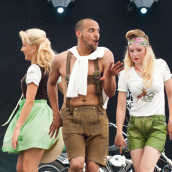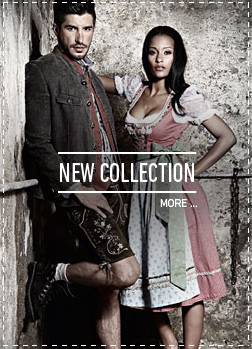Posted by trachten in Bavaria | Comments Off on Ever heard of German carnival?
Ever heard of German carnival?

Say “carnival” and most people will start thinking of Notting Hill. Or say “Mardi Gras” and listen as people start talking about Rio de Janeiro. Yet the beginning of Lent leads to some great events far closer to home too: while Britain is making pancakes, Germany for example is celebrating one of the world’s greatest (and most underrated) street parties.
“Karneval”, as it’s called in German, comes out of the same tradition as pancake day: both of them are all about having a big party before the six weeks of fasting once imposed up until Easter. Pancake day was one last big meal using up all of the delicious flour and sugar in the larder, and Germans too like their baked goods around Karneval.
What they like even more, though, is beer: alcohol is also officially forbidden during Lent for devout Christians, and although Germans aren’t as religious as they used to be, they’ve kept hold of the tradition of having one last binge! This also means that the more Catholic the region of Germany is, the more important Mardi Gras celebrations are: in the Protestant North, Karneval is barely celebrated at all, but in the Catholic West and South, it’s a major event in the social calendar.
If you ask most Germans, they’ll tell you that the place to go for German carnival celebrations is Cologne, and it’s certainly the largest of the pre-Lent festivals. From the Thursday before Shrove Tuesday through until Ash Wednesday, the entire city is turned on its head: Thursday is Weiberfastnacht – or “Wenches’ fasting eve” – and is the night of the year in which women, rather than men, do the legwork, walking up to men they like and demanding kisses (and cutting off their ties to get them back for a whole year of leaving the washing up…). Then there’s a weekend of non-stop parties followed by Rosenmontag – Rose Monday – which is when the city’s Carnival-goers take to the streets and put on a huge parade. Things only really start to wind down on the Wednesday night.
Karneval certainly goes against the stereotype of Germans as humourless, so we can recommend a visit to Cologne whenever Lent is on its way (depending on Easter, it can be any time from early February through to early March). It’s also a great time ti visit Bavaria, though, where “Karneval” is called “Fasching”: Munich especially puts on marvellous displays in traditional costume – and offers some great opportunities to party! While the Cologne Carnival is all about what is happening on the street, Munich’s “Fasching” is dominated by costumed balls and masquerades: and speaking of costume, this is one Bavarian tradition where you’re unlikely to see lederhosen and dirndl being worn, since this traditional costume used to be everyday wear and Fasching is all about disguising yourself so that you can enjoy the party without worrying about your reputation.
Or about the hangover – and the six weeks of fasting – the day after…

